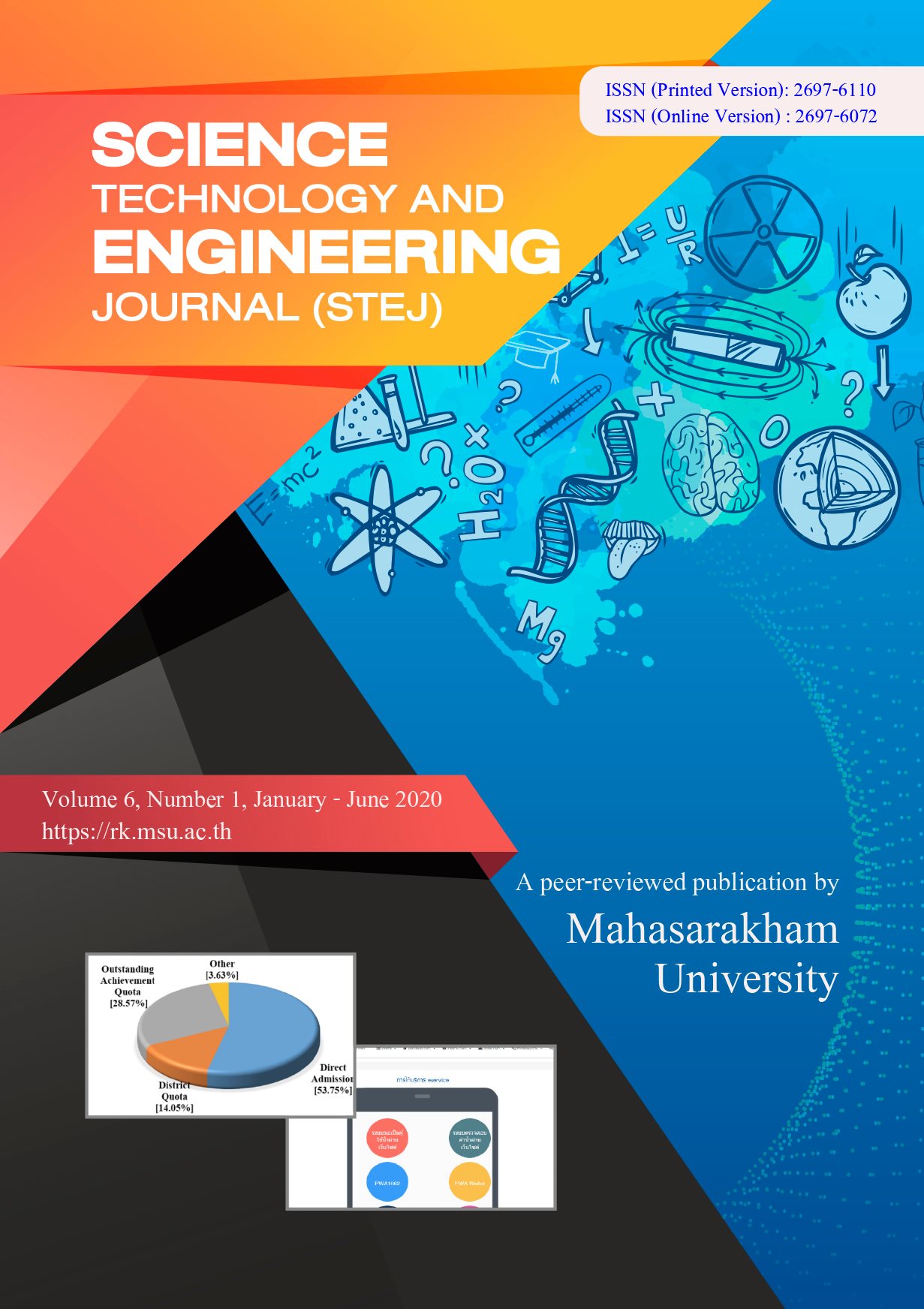Dynamic Changes of Physicochemical Properties of Pineapple Juice during Fermentation with Allochthonous and Autochthonous Yeasts under Different Conditions
Keywords:
Allochthonous yeast, autochthonous yeast, fruit juice, kinetics, pineappleAbstract
The allochthonous yeasts are generally exploited as starter for fruit wines production. The unique abilities of these yeasts are useful to fermented beverages industry. The autochthonous yeasts, non-Saccharomyces yeasts were reported to be wild yeasts that produce the unique flavors and exceptional quality when used for traditional wine fermentation. The objective of this research was to investigate the changes in kinetics of fresh crushed Pattawia variety pineapple juice inoculated with allochthonous and autochthonous yeasts, then incubated with different conditions. The chemical properties of fresh crushed pineapple juice were analyzed. The prepared pineapple juice was inoculated with allochthonous and autochthonous yeasts starter cultures, and then incubated at ambient temperature for 6 days with 3 different conditions. The yeasts population of all inoculated pineapple juices rapidly increased approximately 2 log cycles in day 1 of cultivation. Allochthonous yeast could reduce total soluble solid of fresh crushed pineapple juice to 4.0–5.0 obrix. Whereas, autochthonous yeast had relatively lower nutrients consumption rate as compared with the former. The different methods of cultivation affected their growth profiles, consumption behavior and viable yeast cells count. In this study, the potential of autochthonous pineapple yeast, M. guilliermondii, for applications of fermented beverage production was presented.
Downloads
Published
How to Cite
Issue
Section
License
Copyright (c) 2020 Science Technology and Engineering Journal (STEJ)

This work is licensed under a Creative Commons Attribution-NoDerivatives 4.0 International License.









